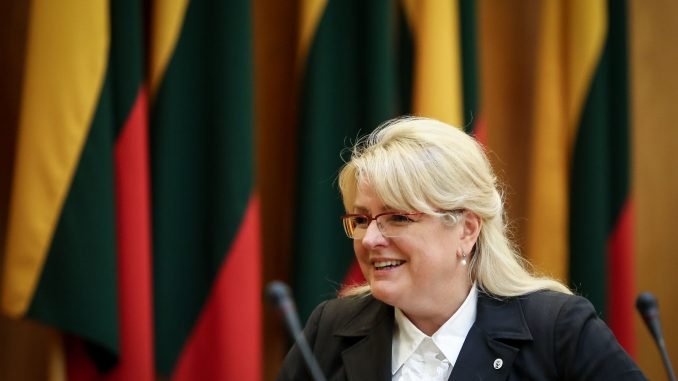
“We are going to decrease structural and long-term unemployment by investing in qualifications and work skills of job-seekers and inactive persons. In this way we expect to increase people’s economic activity and employment levels,” said Minister Pabedinskienė during discussions with labour and social security ministers of various countries.
According to the minister, in addressing the problem of unemployment, Lithuania will seek to improve the environment for investments and new job creation, use the business and self-employment potential, and enhance measures to promote the transition from undeclared work to legal employment. Furthermore, systematic measures will be implemented in order to ensure that requalification meets the market demand and to increase professional mobility of labour.
In the ministers’ discussions of macroeconomic policies aimed at the economic recovery that would lead to creating more jobs, Pabedinskienė pointed out that job-creating economic growth would be impossible without a regulatory, tax and credit environment that is favourable to businesses. Economic growth itself is insufficient for the creation of more jobs of better quality: business environment must be conducive to job creation as well.
“To achieve economic recovery that involves creation of jobs, development of business and formation of new enterprises must be promoted and supported. Developing entrepreneurship and improving access to business start-up services and financial resources (credits) play an important role in promoting business development and creating new jobs,” said the head of the Lithuanian delegation.
The International Forum was organised by the Ministry of Labour and Social Security of Spain jointly with the International Labour Organisation (ILO) and the Organisation for Economic Cooperation and Development (OECD). Delegations from over 35 countries of the world, ILO, OECD, the Spanish government officials, national and international experts took part in the Forum.

Be the first to comment